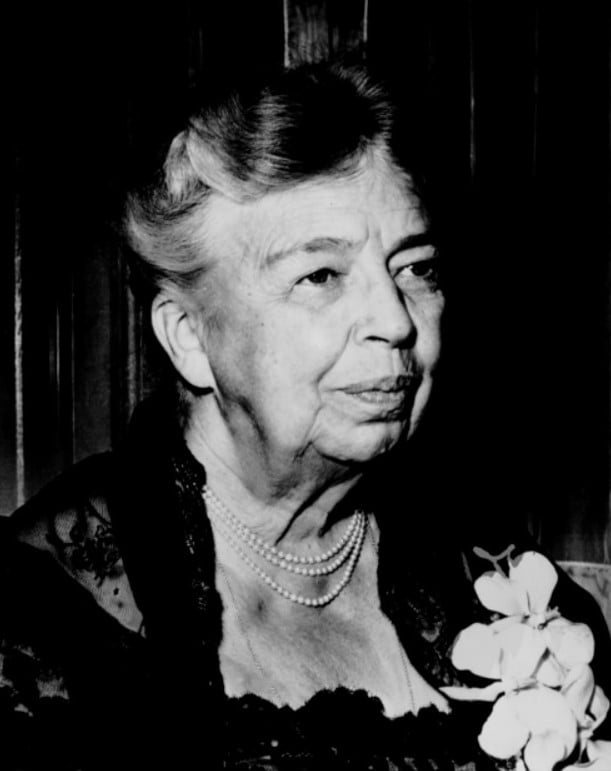Although March is Women’s History Month, gender hardly explains the historical prominence of Eleanor Roosevelt – feminist, civil rights activist, conservationist, diplomat, socialite, writer, teacher, mother, political strategist, unofficial White House ombudsman, wife and first lady to the 32nd president.
Her writing effort alone would more than consume the energy of most people: In addition to a daily newspaper column, she wrote a weekly advice column for more than 20 years called “If You Ask Me” appearing in Ladies Home Journal and then McCall's.
That column – written from the time she was first lady in 1941 until her death in 1962 – is the backdrop for an online conversation about Eleanor Roosevelt’s life and impact in Friday’s online Kendal at Home “Coffee Hour: Eleanor Roosevelt’s Healing Advice.” The presenter is Mary Jo Binker, author of “If You Ask Me: Essential Advice from Eleanor Roosevelt.” Binker is a consulting editor for the Eleanor Roosevelt Papers Project at George Washington University and an adjunct professor of history at George Mason University. Last week we spoke with Mary Jo about "If you Ask Me" and what makes Eleanor Roosevelt such a unique character in our history.
Any topic was fair game
It seems strange in this current era of specialization, but “If You Ask Me” covered seemingly every facet of public and private life, including gender, race, ethnicity, politics, the economy, civil liberties, religion, family, courtship, etiquette, pop culture, education, health care and the environment.
Launched just over six months before Pearl Harbor, the column also covered the war, the home front, the draft, and spurious rumors that cropped up – for example, that white men or Republicans or men of a certain state were disproportionately drafted into combat. From the center of the U.S. government where she shared a home with the commander in chief, she would set readers straight.
Most of her information was gleaned firsthand, much of it from ordinary citizens. In our conversation, Professor Binker described the first lady’s appeal to the American people to “write me” with whatever was on their minds – any topic. And they did.
She gained additional insights as she traveled the country by plane and train to collect voters’ feedback on the president’s New Deal projects. She also served on the United States’ first delegation to the United Nations where she won accolades for successfully resisting the forced repatriation of Eastern European and Jewish World War II refugees.
As a political operative, Eleanor Roosevelt would keep track of political opponents’ treachery and later quietly, politely, unexpectedly take vengeance on the transgressor, sometimes years after the fact. And though she was a uniquely capable woman in a man’s world, she epitomized traditional manners of well-born refinement. In a nutshell, says Binker, Roosevelt was “wise as a serpent and guileless as a dove.”









